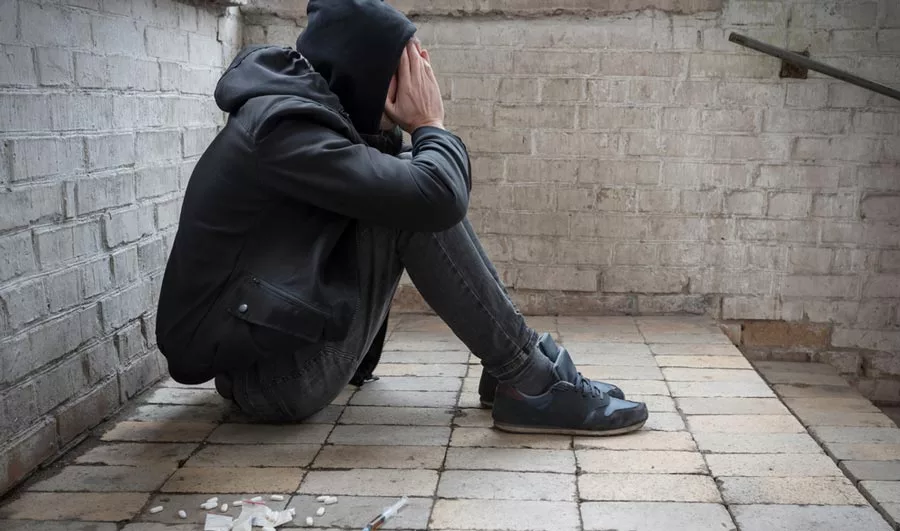Effective Fentanyl Addiction Treatment for Tucson
As the opioid crisis continues to wreak havoc throughout the nation, Arizona has not been spared from the wide reach of the dangerous drug Fentanyl. Because of this, there are many fentanyl addiction treatment centers located near Tucson, Arizona.
If you or a loved one is struggling with fentanyl, finding the right treatment center will be crucial to achieving lasting recovery. The fentanyl addiction treatment programs offered at Catalina Behavioral Health can provide the support and in-depth rehabilitation needed to successfully overcome this substance.
Keep reading to learn more about fentanyl rehab services in Arizona, and how our rehab center can be a great fit for all of you or your loved one’s drug abuse treatment and recovery needs.
24 Hour Fentanyl Rehab Helpline
What is Fentanyl?
Fentanyl is a highly potent and extremely addictive synthetic opioid that can be used to treat severe pain when other pain management methods are not working. While fentanyl and synthetic derivatives of opioids can be effective medications, they are rarely prescribed due to their high risk for abuse.
This is usually the same case with other opioids as well, as the effect these substances have on the central nervous system can be extensive. Opioids work by attaching to opioid receptors in the brain, which are responsible for the body’s response to pain.
While this interaction can help relieve pain, it also produces an intense euphoric high that can make the user want to continue taking fentanyl. With repeated use, they will become dependent on this synthetic derivative and addicted to its euphoric properties.
The Spread of Fentanyl Abuse In Arizona

Fentanyl was first introduced to the Arizona community in 2018 when 19 of these pills were seized from a suspect by the Flagstaff Police Department. Since their introduction to the drug-using community, the abuse of fentanyl has significantly increased.
In 2020, Coconino County, Arizona alone recorded over 14 overdose deaths, with an approximate total of 22,222 fentanyl pills being seized from consumers and dealers alike in the area.
Currently, fentanyl is the leading cause of opioid overdose deaths that occur in Arizona. Teenagers as young as 14 have died as a result of fentanyl overdose. In many cases, illicit fentanyl or synthetic derivatives are being found mixed in with other drugs, most commonly cocaine, meth, and heroin.
As many people are unaware that their drugs have been contaminated, they have a high risk of accidental overdose with every instance of drug abuse. Without knowing there is fentanyl in their supply, there is no way for them to measure a ‘safe’ dose.
In response to the significant danger this drug poses, Arizona has made several steps to make treatment for fentanyl addiction more comprehensive and accessible throughout the state.
What are the Side Effects of Fentanyl Abuse?
There are consequences that come with any form of substance abuse, but the side effects of fentanyl can be particularly intense. Even just one time using this drug can have life-threatening consequences.
Some of the most common short-term side effects of fentanyl abuse include:
- Drowsiness and fatigue
- Nausea and vomiting
- Constipation or diarrhea
- Impaired cognitive function
- Slowed pulse
- Decreased blood pressure
- Respiratory depression
- Loss of consciousness
If someone manages to avoid the fatal effects of fentanyl abuse in their first few uses and continues to abuse this drug for a longer period of time, they may also develop long-term side effects, including:
- Mood swings
- Sexual dysfunction
- Chronic constipated
- Mental health issues
- Increased risk of developing HIV, Hepatitis C, and other blood-borne viruses.
In light of the severity of the side effects that come with fentanyl abuse, those struggling with an addiction to this substance should seek treatment as soon as possible. When treating fentanyl abuse, recovery starts with first admitting that there is a problem.
Recognizing Fentanyl Addiction

While it can be hard to admit that you or a loved one may have a substance abuse problem, recognizing this issue will be the first and most important step in overcoming a fentanyl use disorder.
There are many signs that can indicate whether someone is addicted to fentanyl, including:
- Compulsively seeking out fentanyl and focusing on the next high.
- Inability to stop using the drug without help.
- Continuing to use the drug despite this causing relationship, school/work, legal, and financial issues.
- Developing a tolerance and needing to take more of the drug to achieve the desired effect.
- Job loss, withdrawal from family members and friends, and no longer participating in previously enjoyable activities and hobbies.
- Developing withdrawal symptoms when trying to stop fentanyl use.
If you or a loved one is displaying any of these signs of fentanyl addiction, then it is time to seek help. Fentanyl addiction can be deadly and should be addressed as soon as possible to avoid its devastating consequences.
24 Hour Detox and Rehab Helpline
The Fentanyl Rehab Program at Catalina Behavioral Health
Finding a fentanyl addiction rehab center that can meet all of your care needs can be a difficult process. If you are looking for rehab centers near Tuscan, Arizona, the Catalina Behavioral Health recovery center can be a great fit for you or your loved one’s needs.
We offer comprehensive care to each of our clients and have an extensive staff of experienced professionals including addiction specialists, therapists, nurse practitioners, and other clinical providers who are dedicated to helping our clients achieve long-term recovery.
When recovering through our program, you will have access to various different treatment types as part of your individualized treatment plan, including:
- Detox services
- Residential rehab
- Outpatient treatment
- Medication-assisted treatment
- Mental health treatment
The types of treatment you will receive can vary depending on the severity of your addiction and whether you have other issues that will need to be addressed during your recovery process.
Medical Detox

When someone has a chemical dependency on fentanyl, stopping their use of this drug can cause severe withdrawal symptoms and cravings. That is why it is recommended that when they enter treatment, to start his or her efforts to recover with a medical detox program.
When navigating your own recovery, you may experience several withdrawal symptoms including:
- Muscle and bone pain
- Diarrhea
- Vomiting
- Muscle spasms
- Tremors
- Chills
- Insomnia
- Fatigue
- Increased heart rate and blood pressure
During your stay at our detox center, you may receive medication management services, nutritional counseling, and other services to help alleviate symptoms of withdrawal and make the early stages of recovery safer and more comfortable.
Residential Treatment
When recovering at our residential treatment center, you will be able to focus fully on your fentanyl abuse recovery, learn more about the causes of your addiction, and participate in various addiction treatment methods.
This can range from medication management to addiction education and counseling, to therapeutic interventions such as individual and group therapy opportunities, as well as various behavioral therapies.
We want all of our clients to be comfortable and happy while staying at our treatment facility. With certifications from The Joint Commission and a team of highly-trained, dedicated professionals, you can be sure that you will receive top-quality care throughout your recovery.
Outpatient Treatment
Outpatient treatment can entail participating in an intensive outpatient program, partial hospitalization program, or standard outpatient options. When recovering through our outpatient program, you can receive treatment on an as-needed basis.
We can give you the flexible care you need to lead a better, substance-free life, while still attending to your daily tasks and responsibilities. Our outpatient services will be generally recommended to those with less severe addictions, or who otherwise cannot commit to the intensive treatment provided through our residential facility.
Dual Diagnosis Treatment

In many cases, a person will start to abuse fentanyl to manage an underlying medical or mental health condition that is causing significant pain and difficulty in his or her life. That’s why our recovery center offers dual diagnosis treatment services.
When participating in our dual diagnosis program, you will be able to participate in various recovery services, including:
- Individual therapy sessions
- Group therapy sessions
- Family therapy sessions
- Behavioral therapies
- Medication-assisted treatment
With so many treatment options to choose from, deciding which will be best for your recovery needs can feel overwhelming and stressful. You can reach out to our facility today, and our representatives will help walk you through each of our treatment options and help you determine which of these will be best for your recovery.
The Benefits of Traveling for Treatment
If you do not live near Tucson or are located outside the state of Arizona, our treatment facility can still be a great fit for your recovery needs. In fact, making the decision to travel for treatment can be the best choice you make for your recovery.
Removing yourself from a familiar environment while receiving treatment for a fentanyl addiction can be a great way to make sure you are able to focus solely on your recovery process. This can help you get away from triggering people and places, whether this be a particularly stressful family member or location where you previously would abuse fentanyl.
With our treatment facility located in the Catalina foothills of the Sonoran Desert, you will have access to a serene, beautiful, and restorative recovery environment while participating in our rehabilitation programs. Long-term recovery is possible with Catalina Behavioral Health. Reach out today to learn more about how our facility can fulfill all of your treatment needs.
Start Your Recovery from Fentanyl Today!

The addiction recovery process can seem intimidating, but it doesn’t have to be. At Catalina Behavioral Health, we prioritize the comfort and success of every person who walks through our doors.
We accept many different health insurance providers, as well as private pay options for those who do not have this coverage. Our team believes that everyone deserves treatment, and is willing to work with you or your loved one to find a payment plan that works.
With our extensive treatment options and personalized recovery plans, we can serve all of your or your loved one’s personal care needs for fentanyl detox and effective treatment. Learn more about our program by calling now and we will help you get started at our facility today!
Get Immediate Help for Fentanyl Now!
FAQs on Our Fentanyl Rehab Program
How Long is the Fentanyl Rehab Process?
How long the rehab process will take can depend on several factors, including how long a person has been abusing fentanyl, the severity of his or her problem, and whether they have any co-occurring disorders that may complicate the treatment process. Generally, most people will spend anywhere from 30, 60, or 90 days in our treatment program.
How Many People Have Died From Fentanyl?
In 2020, opioids were involved in approximately 68,630 overdose deaths, which account for 74.8% of all the drug overdose deaths that occurred in the United States that year. 82.3% of these deaths involved synthetic opioids, including fentanyl. In 2021, 5,859 overdose deaths involving fentanyl were recorded.
While it is difficult to gauge the exact number of deaths that have occurred as a result of this powerful drug, it is safe to say that its consequences, both life-threatening and otherwise, are far-reaching and devastating.
Can I Quit Fentanyl By Myself?
Because of how severe the opioid and particularly fentanyl withdrawal process can be, it is never recommended to quit this drug without professional help. If you are taking this medication with a prescription, talking to your doctor about weaning off of fentanyl will be important to safely stop its use.





